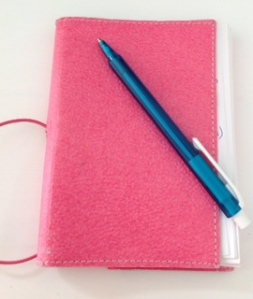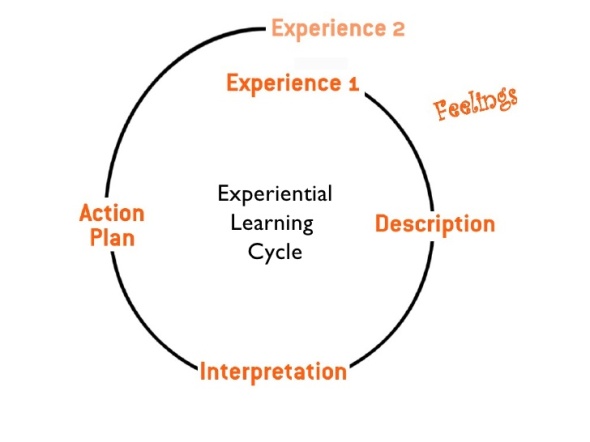Evidence-based reflective practice (ARG May)
1June 15, 2016 by gemmalunn
This month’s topic for the Academic Reading Group in St. Gallen was one I am especially keen on – reflective practice. The article was Thomas Farrell’s Evidence-based reflective practice from the Spring 2013 edition of the ETAS Journal, which you can access here: ETAS J Spring 2013_SS – Evidence based RP. Farrell always writes in an accessible way and this article is no different.
Evidence-based reflections
Farrell proposes that reflective practice should be evidence based as opposed to just ‘contemplating’ about what happens in the classroom and relying on our feelings. This can come from evidence-based reflective practice, specifically three questions which make up this cycle:
1.What do I do?
Farrell states that in order to answer this question we must collect some evidence. This might be through reflective journal, recording classes, peer observation or student feedback.

- Why do I do it?
This question helps us to challenge our beliefs, assumptions and values of teaching and learning a foreign language. This stage may involve reading to see what others recommend and what research shows. A significant point that Farrell makes here is that we shouldn’t just ‘blindly follow’ certain approaches or methods but instead use these to help us ‘make informed decisions about our practice’.
- What is the result?
This stage involves evaluating our lessons. By doing this we can assess whether any areas need to be revised in the next class and this will also help to plan follow-up lessons.
Here are some of the questions we discussed in the meetings and a summary of the answers, you can find the complete handout here:May ARG Reflective Practice Qs
- Farrell says we should ask ourselves “what do I do?” – Do you document classes in any way? (notes on the lesson plan, reflective journal, recording lessons etc). Do you then use this evidence to make decisions regarding activities?
All teachers stated that they make notes on their lesson plans during and after lessons and use these when planning the next class or using the plan again. However, most agreed they needed to add more detail and take more time to consider why activities are or are not working in order to properly reflect. Some teachers were keen to try using a reflective journal to keep all their notes in one place and to reflect regularly rather than just when things go wrong. We discussed the importance of reflecting on all types of classes not just the not so good ones. We also looked at the Experiential Learning Cycle and discussed the usefulness of this especially with regards to firstly getting all your feelings out the way in order to reflect more objectively and therefore more effectively. Finally, we discussed and even set up some peer observations.

The ELC (from @JosetteLB)
- How often and how do you collect student feedback?
Many teachers do this on an ad-hoc basis orally during and after activities or classes. Some conduct their own end of term surveys as well as the ones students do for the school. There were also a few variations on the ‘more/less/same’ approach where students say which types of activities they would like more of etc., this can be done in simple lists or with post it notes that student put on the board and compare. One teacher also types up all the feedback and goes through it with the students in the next class and uses this as a basis for the next term’s syllabus which I think is a great idea. For young learners and teens another teacher writes a letter to each student giving them feedback, telling them what she’d like them to do more or less of next term. These can then be used as part of students’ aims at the beginning of the next term.
- What are some of your beliefs, assumptions and values associated with teaching and learning a language?
The answers to this ranged from creating a relaxed and safe environment for students where they feel confident to speak and not afraid to make errors, to providing plenty of opportunities for students to use the language (i.e. speak as much as possible). Other points included, showing students how to become autonomous learners and how they need to take responsibility for their learning and limiting the amount of L1 students use in class.
As always, at the end of the meetings we all set a goal for the upcoming month. Mine was to do some peer observations which I always find extremely beneficial.
Thanks to all the teachers who came along to both sessions, look forward to the next meeting.



[…] 6. Gemma’s Evidence-based reflective practice […]